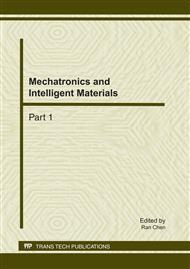p.798
p.803
p.808
p.813
p.818
p.823
p.827
p.832
p.837
A Multi-Objective Robust Preference Genetic Algorithm Based on Decision Variable Perturbation
Abstract:
Multi-objective optimization is a challenging research topic because it involves the simultaneous optimization of several complex and conflicting objectives. However multi-objectivity is only one aspect of real-world applications and there is a growing interest in the optimization of solutions that are insensitive to parametric variations as well. A new robust preference multi-objective optimization algorithm is proposed in this paper, and the robust measurement of solution is designed based on Latin Hypercube Sampling, which is embedded in the optimization process to guide the optimization direction and help the better robust solution have more chance to survive. In order to obtain different preference of the robust solutions, a new fitness scheme is also presented. Through the adjustment of fitness function parameter preference, robust solutions can be obtained. Results suggest that the proposed algorithm has a bias towards the region where the preference robust solutions lie.
Info:
Periodical:
Pages:
818-822
Citation:
Online since:
February 2011
Authors:
Price:
Сopyright:
© 2011 Trans Tech Publications Ltd. All Rights Reserved
Share:
Citation:


